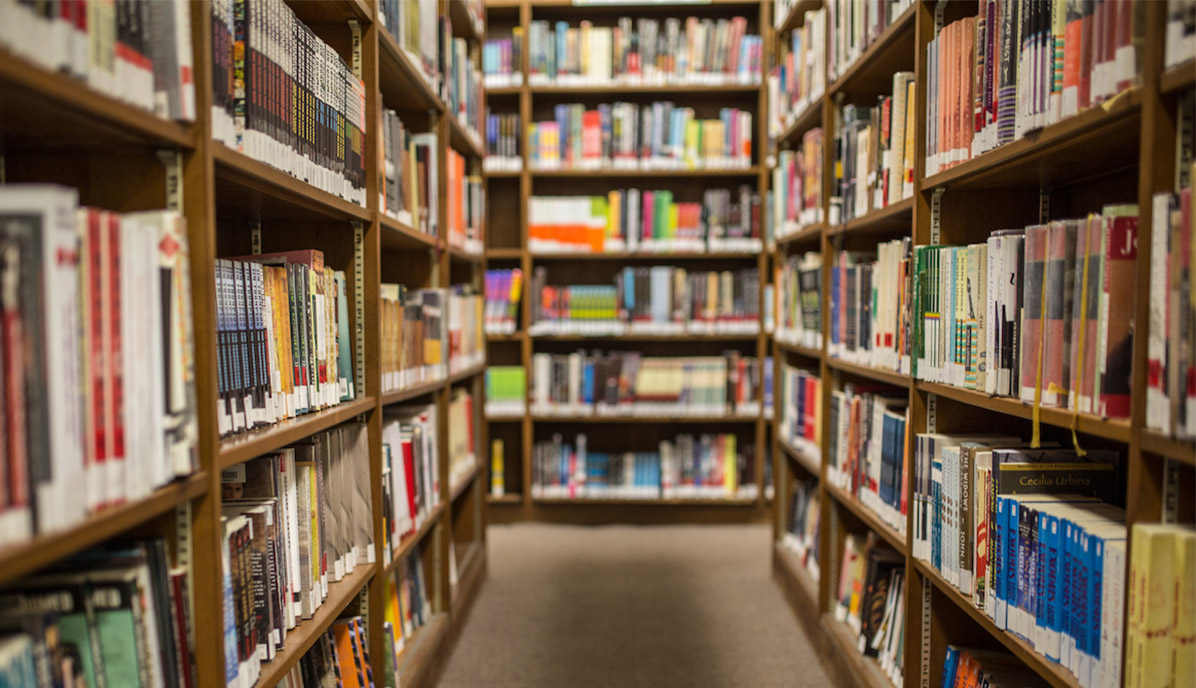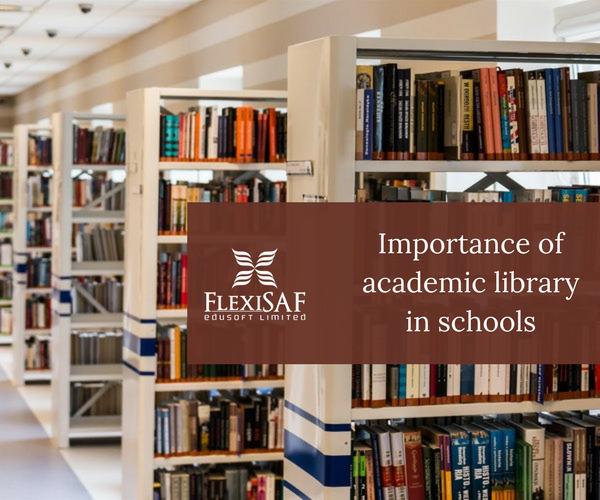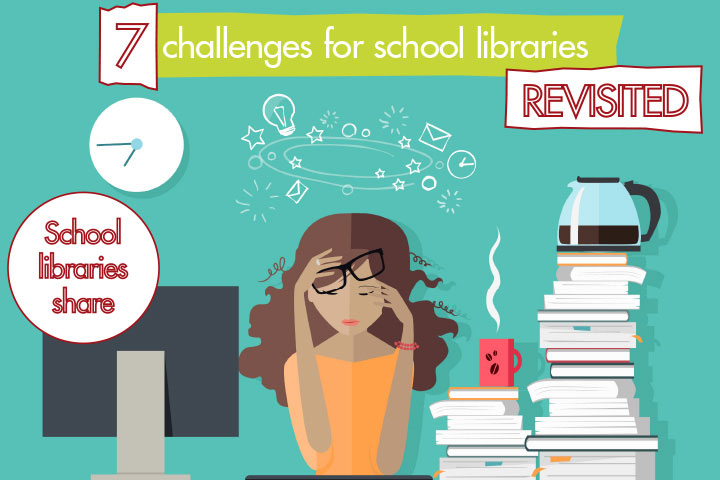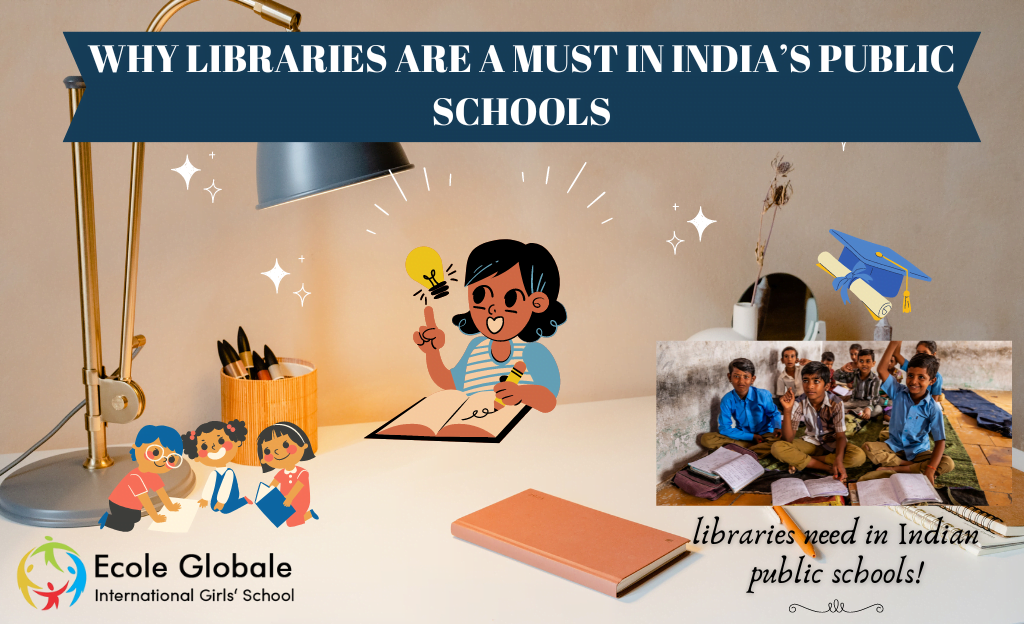Education is a fundamental right that every child in India is entitled to. However, the country faces several challenges in providing quality education to all, especially in public schools. While the government has made efforts to improve the education system, there is still a lot to be done. One essential aspect of education that often goes neglected in public schools is libraries. Libraries are crucial in providing students with access to resources that enhance their learning experience. In this blog, we will explore why libraries are a must in India’s public schools.
Educational Challenges in India

According to the Boarding Schools in India, With a population of over 1.4 billion, India has one of the largest education systems in the world. Despite this, the country faces numerous challenges in the education sector, one of which is the inadequate infrastructure in public schools. This has a significant impact on the learning experience of students and their ability to succeed academically.
Public schools in India often lack basic facilities such as electricity, clean water, and sanitation. The lack of electricity can result in students having to study in poorly lit classrooms, affecting their ability to read and write effectively. Inadequate sanitation facilities can lead to health problems and a lack of attendance among students. Additionally, the lack of clean water can result in students falling ill due to water-borne diseases.
The lack of infrastructure also affects the quality of education provided. Without adequate infrastructure, teachers may struggle to deliver lessons effectively, resulting in a poorer learning experience for students. This, in turn, can lead to lower academic performance and limited opportunities for students in the future.
Furthermore, there is an unequal distribution of resources, with urban areas having better facilities than rural areas. As a result, students in rural areas face several challenges in accessing quality education. Many schools in rural areas lack basic facilities such as textbooks, laboratory equipment, and qualified teachers. This, coupled with inadequate infrastructure, makes it difficult for students to access quality education.
The Power of Libraries in Shaping Education

Libraries play a crucial role in enhancing the learning experience of students. They provide access to a wide range of resources, such as books, magazines, newspapers, and online databases. Libraries are not just repositories of books; they also provide an environment that encourages reading and fosters critical thinking.
Libraries play a significant role in promoting reading habits among students. Reading helps in developing language skills, improving vocabulary, and enhancing comprehension abilities. Furthermore, reading books outside of the curriculum helps broaden the horizons of students and provides exposure to diverse perspectives.
Libraries also foster critical thinking among students. By providing access to a wide range of resources, libraries help students develop analytical skills and think beyond the prescribed textbooks. Libraries provide a platform for students to explore their interests and curiosity.
Why are Public School Libraries Essential?

As per research conducted by Schools in India, Libraries in public schools offer several benefits. The first is that they enhance academic performance. Students who have access to libraries tend to perform better academically compared to those who don’t. Libraries provide a wide range of resources that supplement classroom teaching and enable students to understand concepts more effectively.
The second advantage is that libraries bridge the digital gap. With the emergence of technology, internet access has become essential for students. However, not all students have internet access at home. Libraries offer students access to the internet, allowing them to complete assignments and research topics beyond the curriculum.
Lastly, libraries promote overall development. Libraries provide an environment that fosters critical thinking and encourages reading, which can aid students in developing analytical skills. Furthermore, libraries offer a platform for students to explore their interests and develop new skills.
Challenges of Public School Libraries

Despite the many benefits that libraries bring to public schools, several challenges are faced by public schools that hinder their effectiveness. One major challenge of public schools is the lack of resources. Public schools often struggle with inadequate funding, which makes it difficult to provide libraries with the necessary resources they need to function optimally. This includes books, technology, and infrastructure such as proper shelving and seating.
Another challenge faced by public school libraries is the shortage of staff. In many cases, libraries may only have one or two staff members, which makes it challenging to cater to the needs of all students, particularly during peak periods. This often results in long wait times, and some students may not receive the necessary help or attention they need to complete their assignments.
Furthermore, public school libraries may not receive the necessary support from school authorities. In some cases, school authorities may not prioritize the library over other aspects of the school or may not be aware of its significance. This lack of attention may result in inadequate funding, understaffing, and the neglect of the library’s maintenance needs.
The neglect of public school libraries may have long-term effects on students. Without access to adequate resources and support, students may not be able to develop critical research and analytical skills. This can affect their academic performance and future prospects. Therefore, it is crucial that public school authorities recognize the importance of libraries and provide them with the necessary resources, staffing, and support to ensure that students can fully benefit from their services.
Final thoughts
In India, public schools face challenges in providing quality education to all, with inadequate infrastructure being a major issue. Libraries play a crucial role in enhancing the learning experience of students by providing access to a wide range of resources, promoting reading habits and critical thinking, and bridging the digital gap. However, public school libraries often lack resources, staffing, and support, which can have long-term effects on students. It is crucial that public school authorities recognize the importance of libraries and provide them with the necessary resources to ensure that students can benefit fully from their services.






